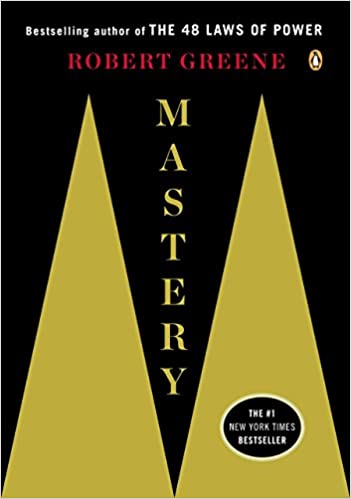
Mastery
by Robert Greene
⏱ 11 minutes reading time
🎧 Audio version available
He’s Determined
There is normal determination, and then there is the intense determination Elon Musk is infamous for. A large part of why he’s so successful is his relentless drive.
Everyone who has ever met and worked with Musk– or even heard about him– knows the story of how dedicated he is to his job. The average person works around 35 hours per week to make a living. Musk, on the other hand? You’ll often find him working 80 to 100 hours per week.
In those early years, and probably even now, people often found Musk sleeping under his desk at the Tesla factory. He went all in to make sure his company succeeded. If a malfunctioning machine needed fixing in the middle of the night, he was on it. If it was his 47th birthday, it made no difference.
That same determination allowed him to achieve his impossible goal of making over 50,000 cars in the third quarter of 2018, which worked to secure Tesla and Musk’s future as innovators in the business. In 2019, in that same quarter, he was able to almost double that number of cars.
His motive for working so long? He says it makes him achieve his goals twice as fast if not more. To quote him,
“If other people are putting in 40-hour workweeks, and you’re putting in 100-hour workweeks, even if you’re doing the same thing… you’ll achieve in four months what it takes them a year to achieve.”
It’s Not About the Money For Him
It seems inconceivable to think that one of the richest men in the world doesn’t care that much about money, but time and time again, Elon Musk has proven that his focus lies elsewhere, like colonizing Mars.
He’s even said before that he views himself as an engineer rather than an investor.
When asked about his views on money– he doesn’t receive a salary from Tesla, by the way, but we’ll get to that in a minute– he answered,
“It’s not as if there is a pile of cash somewhere. It’s really just that I have a certain number of votes in Tesla, and SpaceX, and SolarCity, and the marketplace has value on those votes.”
While he doesn’t condemn working in the pursuit of being wealthy, it’s not what drives him. Dying rich is the last thing on his mind. Rather, he expects that he’ll dedicate the majority of his billions towards building a base on Mars. He wouldn’t mind putting all his wealth in Mars, actually.
So, you may wonder what does get him up every morning?
It’s his desire to solve problems and to make the world a better place. He wants “things in the future to be better.” He wants to create exciting things.
This can be seen in why he established SpaceX, for example. US space programmers weren’t as ambitious as he wanted.
The same goes for Tesla; he wanted to completely revolutionize the industry. The same also goes for the rest of his mile-long list of accomplishments: building trains in vacuum tunnels, revolutionizing solar power, trying to build the world’s largest battery factory, and more!
As for his salary, you would expect a CEO as wildly successful as Musk to earn millions on a monthly basis, but Musk famously refused a cash salary from Tesla. Instead, he asked that nearly all of his compensation be in the form of stock.
Musk prefers to tie his compensation with ambitious milestones and long-term goals.
This brings us to our next point of why Elon Musk is so successful.
His Ambition
Elon Musk isn’t just ambitious, he’s bold. His incentive is to make breakthroughs. He doesn’t follow the mold. All he wants to work on is “stuff that’s going to matter.”
Believe it or not, but he often cites the novel, “The Hitchhiker’s Guide to the Galaxy” as what makes him so ambitious.
For those who aren’t familiar with the novel, it poses an ultimate question: the ultimate question of life, the universe, and everything.
What Musk learned from it is he needs to decide what questions to ask, and he figures, once you do that, “the rest is really easy.” He also found that the world should aspire to scale the human consciousness to have a better grasp of what questions to ask.
Having doubts about how ambitious one man can really be? Elon Musk’s ultimate ambition is making it to Mars and establishing a human colony. That’s about as ambitious as a person can get. Thanks to SpaceX and Musk’s work, sending humans to Mars– which he calls a “fixer upper” is quickly becoming a reality.
He’s Not Afraid to Take Risks
Most CEOs aren’t crazy about risks. But while each billionaire has an unique approach to business, few love risks the same way Elon Musk does.
This can be traced all the way back to 2002. Musk took a risk and sold off his holdings in the first two ventures he’d ever taken part in: the now famous online payment company, PayPal, and an internet city guide, called Zip2.
At the time, he was in his early 30s and nowhere near as wealthy as he is today. He had almost $200 million.
He could have continued down the same career path or even retired and lived off the $200 million for the rest of his life. But he did something totally unexpected. He put half of his fortune back into his businesses and planned to keep the other half.
Of course, things didn’t work out as he’d planned. At the time, Tesla was a mess and running into every sort of production problem possible– from design troubles to issues in the supply chain, you name it. A financial crisis ensued.
Musk arrived at a crossroads. He could either keep the money he had left. The companies would definitely die, he predicted. Or, he could take what he had left and invest it in his companies as one of the biggest risks of his life.
He took that leap of faith and started investing what was left of his personal money. He arrived at a point where he was so in debt that he reportedly struggled with living expenses and had to borrow from friends.
Thankfully, due to his hard work and well-timed risk, it all worked out. This inspired him to say,
“If something’s important enough, you should try, even if the probable outcome is a failure” and “If things are not failing, you are not innovating enough.”
He Doesn’t Take “No” For An Answer
This upcoming lesson comes from a famous story Musk’s first wife, Justine Musk, shared. When they were dating in college, his fierce competitiveness showed during a test.
Justine had scored a 97 while Musk had a 98. Musk…wasn’t satisfied. He went back and convinced their professor to revise the test. And what do you know, the professor ended up giving him a hundred!
Justine also often said that she could always tell it was Elon calling because the phone wouldn’t stop ringing until she answered. Likening him to a “Terminator,” she said, “The man does not take no for an answer. You can’t blow him off…He locks his gaze on to something and says, ‘It shall be mine.”
This relentless behavior? It’s imprinted in Elon Musk’s special formula for success. Anyone else would have been happy with a 98%, but not him. He wanted a 100% on that test and a 98% sounded like a “no” to him, so he changed it.
He Seeks Feedback
You would think that someone with Elon Musk’s success and reputation would find feedback and criticism hard to swallow, but that’s not the case. To quote the legend himself,
“It’s very important to have a feedback loop, where you’re constantly thinking about what you’ve done and how you could be doing it better.”
He also adds that he thinks
“that’s the single best piece of advice: constantly think about how you could be doing things better and questioning yourself.”
Elon Musk knows that feedback helps companies grow. There is always room for improvement. He also understands which kind of criticism is best to take and which is best to ignore. He says,
“Really pay attention to negative feedback and solicit it, particularly from friends. Hardly anyone does that, and it’s incredibly helpful.”
What Is Snapreads?

With the Snapreads app, you get the key insights from the best nonfiction books in minutes, not hours or days. Our experts transform these books into quick, memorable, easy-to-understand insights you can read when you have the time or listen to them on the go.



